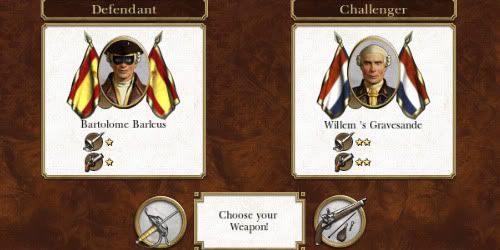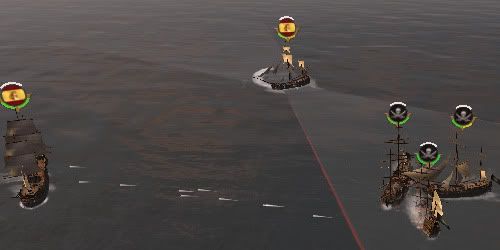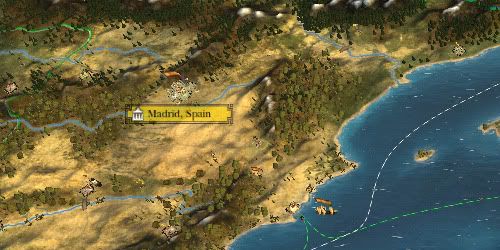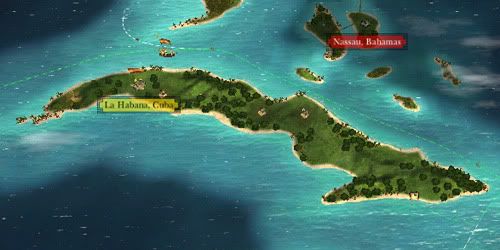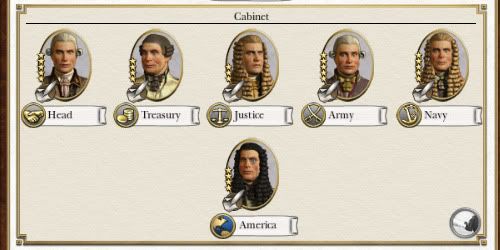I've been on something of a Whoniverse overdose the past two days. SciFi aired a marathon of the best of Doctor Who season 3 on Monday ("Human Nature"/"Family of Blood", one of my favorite things ever produced for television, plus "Blink" and "Utopia"/"The Sound of Drums"/"Last of the Time Lords", "The Sound of Drums" being my personal choice for most purely entertaining piece of television ever), and this combined with the glowing reviews of Torchwood's limited season three/miniseries event thing "Children of Earth" got me to watch that, too--and, before I did, the final three episodes of Torchwood's season two, which have been sitting unwatched on my computer since they aired over a year ago due to my growing indifference to the series. (A short review: the last three episodes were better but still mostly Torchwood as usual. "Children of Earth", on the other hand, is really quite good and absolutely brilliant in a few unexpected places.)
But what I'm more interested in is the political circumstances depicted in the Doctor Who finale and in "Children of Earth". I realize I'm way late to the game in analyzing the Master's return, but as a student my work is mostly analyzing old things anyway, so whatever. What's interesting to me about the political circumstances is that they aren't unusual, or different, or new, beyond the superficialities of aliens and advanced technology.

The Master (John Simm) in Doctor Who (2007)
In "The Sound of Drums", the Doctor figures out that the Master has elected himself Prime Minister of Great Britain via embedding a psychic signal within a satellite network that controls cell phones: it's not exactly mind control, the Doctor says, just an implanted rhythm (the chilling "Sound of Drums" that also reverberates uncontrollably within the Master's mind) that contains the message: "Believe in me. Vote for me." It seems like just a science fiction plot device, but the moment when the Doctor's companion's acknowledge that even they were planning on voting for the Master (before they knew who he was) resonates uncomfortably with the modern political space:
Martha: I was gonna vote for him.On one level it's a merely a demonstration that the Master can affect even those who should be most resistant to his machinations. But of course on another level there's a sense that this isn't actually unusual. Martha's inability to articulate the Master's policy despite her confidence in him--her admission that she simply "trust[ed] him" based on "the sound of his voice" would not sound out of place in a modern news segment interviewing voters (or more likely, a Daily Show parody ridiculing the ignorance of voters, though the difference between the comedic farce of The Daily Show and the blatant lies of mainstream news is a thin one indeed).
The Doctor: Really?
Martha: Well, it was before I even met you. And I liked him.
Jack: Me too.
The Doctor: Why do you say that? What was his policy, what did he stand for?
Martha: I don't know, he always sounded . . . good. Like you could trust him. Just nice. He spoke about . . . I can't really remember, but it was good. Just the sound of his voice . . .
Ultimately this element of political commentary is dropped in favor of Doctor Who's more usual intensely absurd character drama (which I love, no mistake), but I wish there was more of it. The political aspects of the new series--Harriet Jones, UNIT, and of course Torchwood--are some of its most interesting (at least in terms of its Earth-based stories) because they do often seem to be simply our modern circumstances with aliens thrown in.
Torchwood, indeed, deals with this a bit more often (though sometimes it dodges it when I feel it shouldn't), especially in "Children of Earth". But even in its full seasons there's an interesting arc in the background of the acknowledgement of the existence of aliens by the general populace despite governments' continued official denials. For some time I considered it simply absurd and contrived that the populace at large hadn't already simply accepted this after the events of Doctor Who's seasons--the Master himself points out a number of such incidents, including the highly visible destruction of Big Ben by an alien spacecraft, as part of a press conference announcing his (as Prime Minister) official first contact with aliens (an elaborate ruse ending with his global domination, though the aliens are real).
It seems ridiculous that after this public declaration and subsequent fallout (the deaths of the Master as Prime Minister and the American President in "Last of the Time Lords") the world's governments would refuse to acknowledge aliens and that the public would, by and large, accept this. And it should be ridiculous. But the more I thought about it, the more it occured to me that such obvious, blatant lies have always been the province of government, and though in the age of decentralized social media these lies are more visible than ever before to those looking for them, they still have ridiculous powers of persistence.

The United States' torture of detainees, its general execution of the War on Terror and the predatory nature of Western foreign policy in general, plus many, many others: they're a sort of step beyond "open secrets", those things like Israel's nuclear armaments that are officially denied but nonetheless widely acknowledged. They're things that anybody looking to know can know, that all the information about is out there and ridiculously easy to find, but that the vast majority of the public do not know, because the mainstream news refuses to acknowledge them and because the public in general simply do not want to know.
And with this depressing realization I accepted that Torchwood's treatment of the subject is actually probably accurate. Even after so many public images, most people wouldn't accept the existence of aliens--but it wouldn't be hard for them to accept it once forced to, as happens numerous times throughout Torchwood. It seems at first wierd that people accept so easily extraterrestrial life, perhaps just a necessary plot contrivance to keep 42-minute episodes moving, but once we see that they already know, in some sense, and just haven't accepted it yet, it becomes much more understandable (and, perhaps, frightening).
I've got more to say about politics and "Children of Earth", but it's of a more different sort, and so will be another post.



